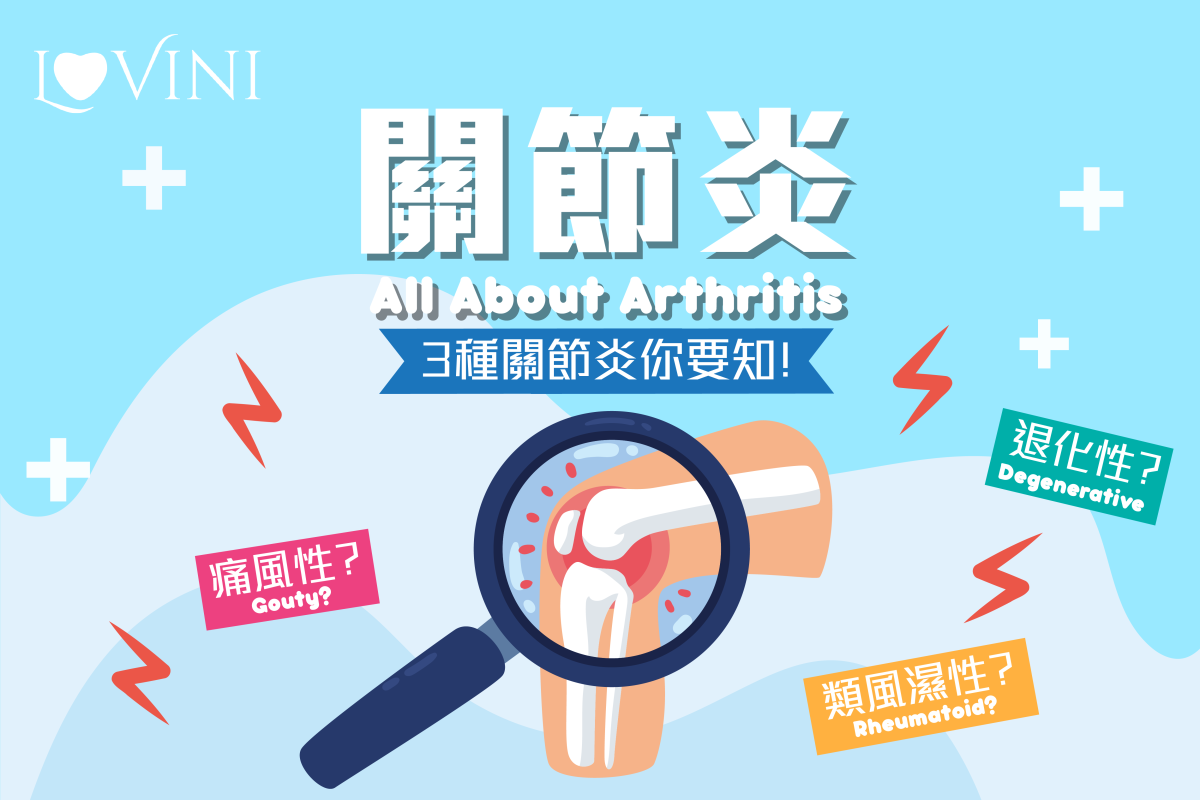Are you experiencing joint paint and finding ways to alleviate it? First you need to find out what could be causing your joint pain and what type of Arthritis you belong to! Then check out our Arthritis guide to see how nutrition and supplements can help to improve!
Joints will be in pain and swell during inflammation. Arthritis may occur in smaller joints (such as fingers) and larger joints (such as hip or knee). Long term arthritis may make joints become stiff or even deformed, resulting in reduced joint mobility.
Common types of Arthritis:
- Rheumatoid arthritis
- Gouty arthritis
- Degenerative arthritis
Rheumatoid Arthritis
The underlying reason is still unclear. It is just known to be related to immunity issues, leading to hyperplasia and inflammation of joint tissue.
Risk factors:
- Sex (female are more prone to disease)
- Family history of rheumatoid arthritis
- Obesity
- Smoking
Nutrition
- Omega-3 fatty acid’s anti-inflammatory property can reduce joint inflammation. Oily fishes such as mackerel, salmon, tuna and yellow croaker are rich in omega-3, while walnut, chiaseed and flaxseed are also good plant sources.
- High fat and saturated fat intake are also linked to joint inflammation. It is recommended to reduce consumption of fatty meat, skin, butter, full cream dairy and palm oil.
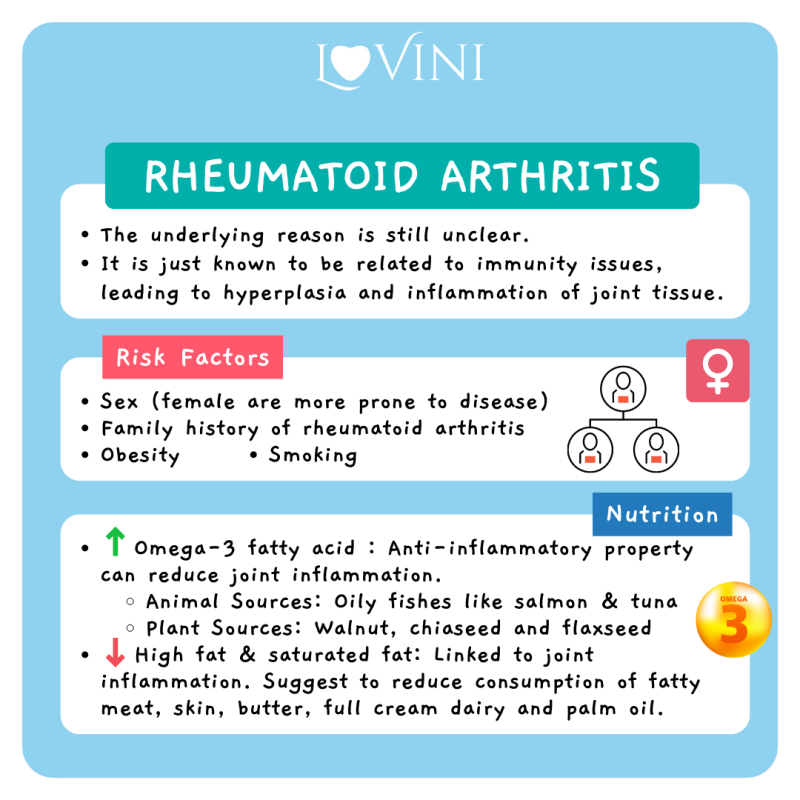
Gouty Arthritis
We will consume a certain amount of purine in our diet. Purine is converted into uric acid after metabolism. If there is excess uric acid in our body, urate will be accumulated inside the joints, leading to inflammation and pain. It is called gouty arthritis.
Risk factor:
- Sex: male more prone to disease
- People with obesity, hypertension, hyperlipidemia and diabetes
- Alcoholic
- Kidney disease
Nutrition
- Reduce intake of high purine foods such as seafood, organs, thick soup. Avoid excessive intake of moderate purine foods such as meat.
- Avoid beer and other alcoholic drinks. Apart from being high in purine, alcohol will also make uric acid difficult to be excreted, speeding its accumulation.
- It is recommended to drink 10-12 cups of water to help our body remove excessive uric acid.
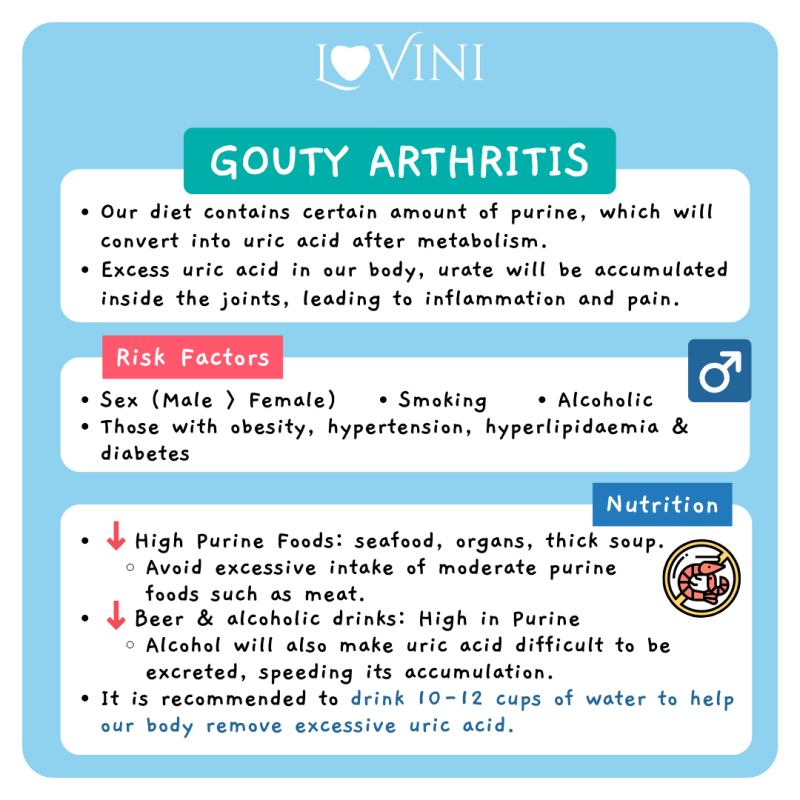
Degenerative Arthritis
As the joint ages, secretion of synovial fluid decreases. The contact surface of the bone in the joint (i.e. the articular cartilage) is worn away. It results in the proliferation of bone spurs on the joint edge or subchondral worn area, causing inflammation.\
Risk factor:
- Age: risk increases if >50 years old
- Sex: female more prone to disease, especially during or after menopause. Because the reduced level of estrogen is being less protective to the joint.
- Obesity: Heavier weight will put more stress to joint, speeding up the wearing
Nutrition
- Similarly, having more omega-3 and less saturated fat can help reduce inflammation and alleviate arthritis.
- Collagen is the building block of cartilage. Proper supplementation of collagen can delay joint degeneration. Pig skin, chicken feet, fish skin and beef tendon contain plenty of collagen. However, as pig skin and chicken feet are both high in saturated fat, It is recommended to choose beef tendon and fish skin as a source of collagen for better health.
- Collagen is made of certain amino acids such as glycine and proline. Therefore moderate consumption of egg and meat to have enough protein is also very important. Meanwhile, boosting intake of vitamin C can also help speed up collagen synthesis.
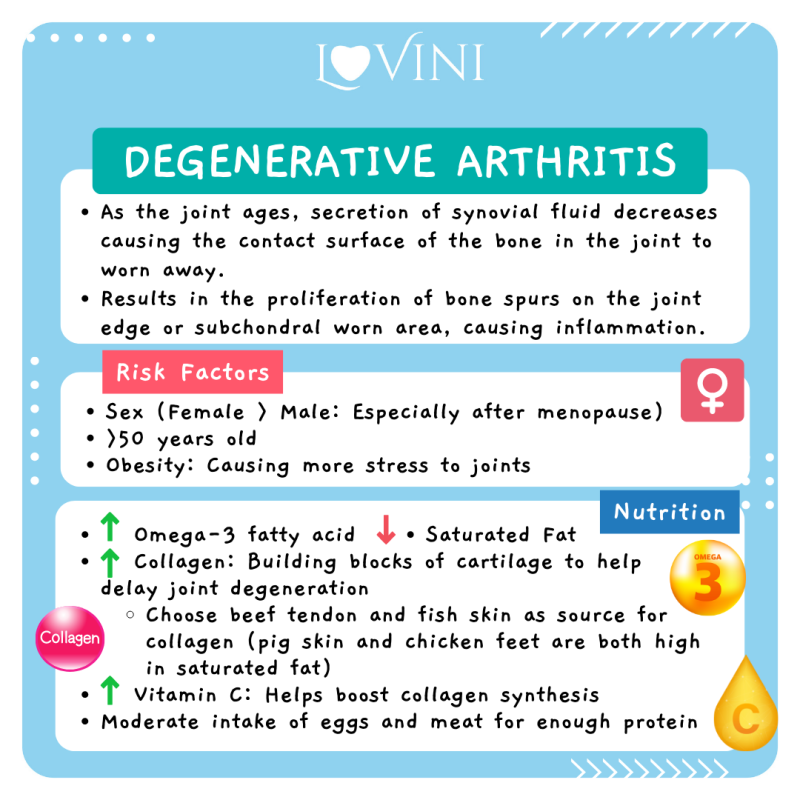
Lovini’s Recommendation!
Now that you know the causes of each type of Arthritis and the nutrition that helps! Check out our Lovini Joint Care Xtra which can supplement your daily diet to help improve arthritis!
Lovini Joint Care Xtra (60 Capsules)
- Delays the deterioration of joint tissue
- Improves joint functions
- Increases the secretion of lubricating mucus and strengthens soft tissues
- Contains anti-inflammatory function
- Protects cartilage
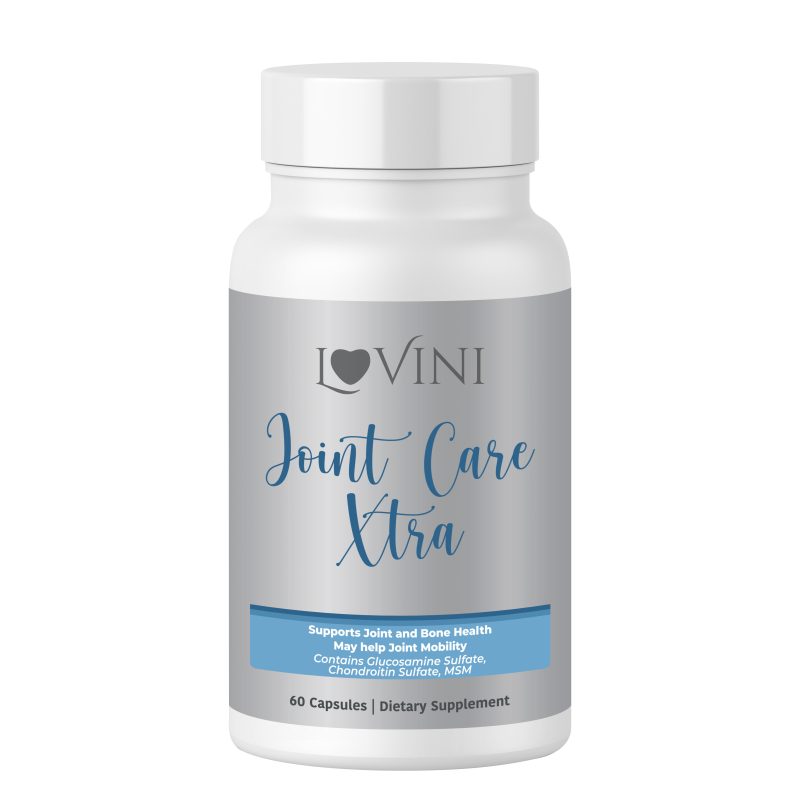
Reference
- Hong Kong Arthritis & Rheumatism Foundation Ltd. – Disease Information https://www.hkarf.org/disease-education/disease-information/
- Bakilan F, Armagan O, Ozgen M, Tascioglu F, Bolluk O, Alatas O. Effects of Native Type II Collagen Treatment on Knee Osteoarthritis: A Randomized Controlled Trial. Eurasian J Med. 2016;48(2):95-101. doi:10.5152/eurasianjmed.2015.15030
- Abdulrazaq M, Innes JK, Calder PC. Effect of ω-3 polyunsaturated fatty acids on arthritic pain: A systematic review. Nutrition. 2017;39-40:57-66. doi:10.1016/j.nut.2016.12.003

